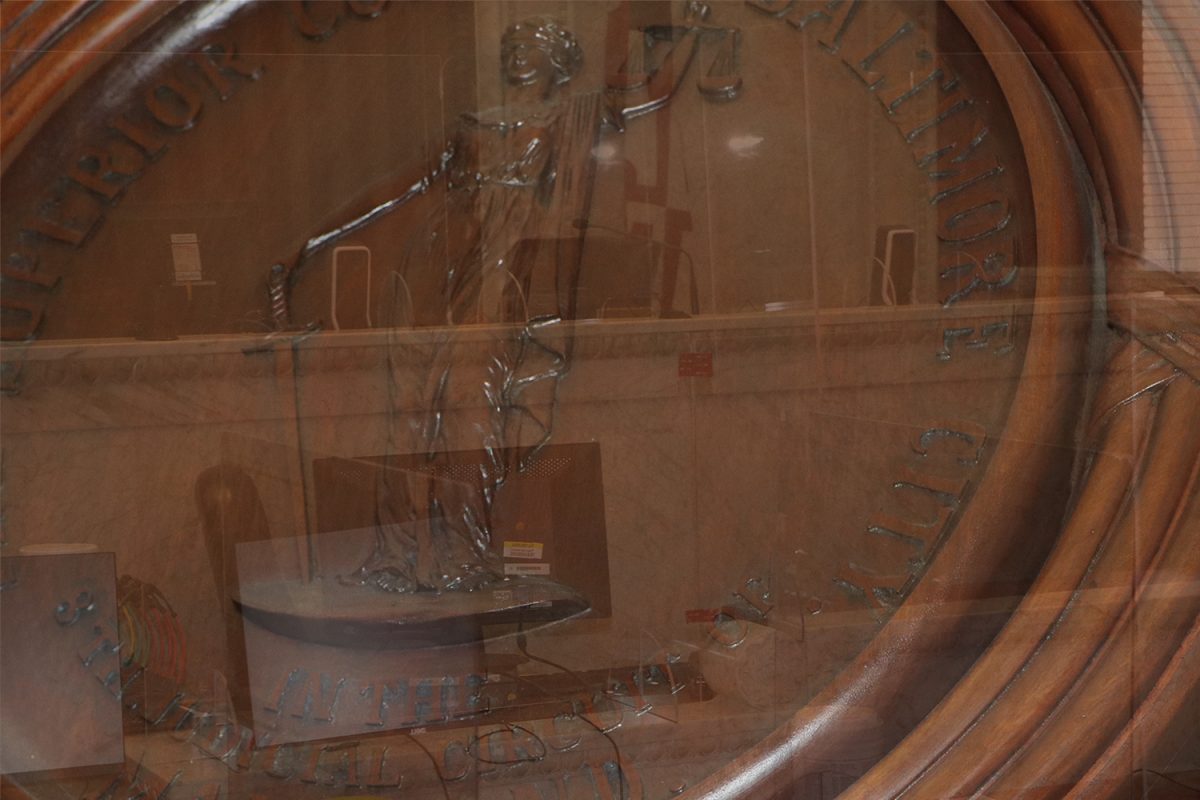
Thank you for reading Baltimore Witness.
Consider making a donation to help us continue our mission.
By
Tyler Parkes [former]
- May 10, 2022
Attempted Murder
|
Court
|
Daily Stories
|
Non-Fatal Shooting
|
Suspects
|
Victims
|
Jury selection will proceed on Wednesday morning for a Baltimore man accused of attempted murder, despite arguments over how to handle evidence between the prosecutor and Baltimore City Circuit Court Judge Lynn Stewart Mays.
Anthony Evans, 29, is charged with attempted first and second-degree murder, attempted armed robbery, attempted robbery, first and second-degree assault, use of a firearm during a violent crime, reckless endangerment, possession of a firearm with a felony conviction, possession of a firearm in the presence of a controlled dangerous substance, having a handgun on his person, and discharging of a firearm in connection to an incident from Jan. 22, 2019.
According to the prosecutor, the victim was shot in the head in an alley outside of a liquor store. He survived his injuries and was able to get help. However, the victim was unable to recognize the man who shot him.
Two motions were to be discussed before jury selection occured for Evans’ trial. The first motion was for Evans’ charges to be dismissed as he was denied a right to a speedy trial.
Evans’ defense attorney, Linda Zeit, argued that because of multiple postponements due to the COVID-19 pandemic or because the prosecutor was not prepared, Evans had been incarcerated for an unreasonably long time prior to his trial.
However, the main reason for the postponements was the pandemic as well as Evans being incarcerated under a separate charge. Judge Mays denied the first motion.
The second motion presented by the defense was for the surveillance footage, the prosecutor planned to use as evidence, to be excluded.
Upon inspection, the judge agreed that the footage was clearly doctored and edited. The video footage was produced by a third-party security company who handled the security cameras for the apartment building next to where the crime took place.
The footage contained approximately two hours of camera footage with six cameras edited down to a roughly seven-minute cut. This involved time jumps, both sped up and slowed down footage, and time stamps edited into the video. The footage was called into question by the defense because of the editing was concise without any authoritative approval.
The victim confirmed the authenticity for a specific section of the video that he was present in.
Because the victim was able to verify this approximately one-minute-long section of the video, Judge Mays ruled that this section could be used during the jury trial, but the rest of the video could not.
When Judge Mays asked the prosecutor how witness references to parts of the video not allowed in court, specifically the detectives who used the video in their investigation.
The prosecutor was repeatedly unable to answer Judge Mays’ question, which led to her frustration. At one point as the prosecutor’s arguing continued, Judge Mays’ left the courtroom in a visibly angry state.
Although she returned, the prosecutor was still unable to produce a suitable answer and was adamant that it was not an issue.
Judge Mays decided to proceed with jury selection, but warned the prosecutor that, because this matter had not been resolved, the case would almost assuredly result in a retrial if the prosecution secured a conviction.
Jury selection is scheduled to begin on May 11.
